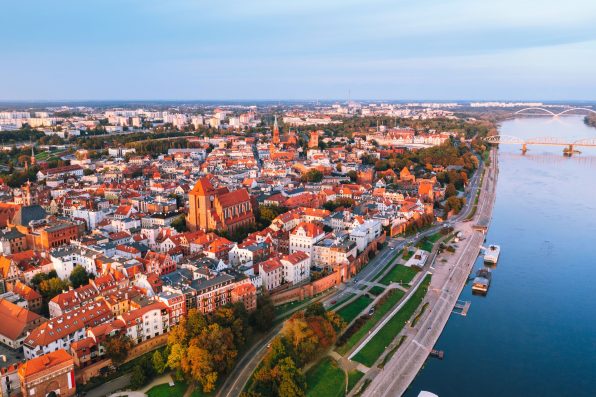Groups Of Mussels In Warsaw Are Equipped With Magnetic Sensors To Monitor Drinking Water Quality, Letting Authorities Know If The Tap Water Supply Should Be Shut Off

Every day, Gruba Kaśka, one of the largest water filtration plants in Warsaw, Poland, pumps millions of gallons of water out of the Vistula River and through taps in people’s homes. The cleanliness and quality of this water are managed by an unexpected entity — mussels.
Of course, there are artificial monitoring systems in place to measure chemical contamination in the water. After big rainstorms, fertilizers and pesticides can sneak their way into our drinking water supply as well as heavy metals from industrial waste sites.
However, it’s impossible for these systems to test the water for every contaminant before it is pumped throughout the city. That’s where the mussels come in. They provide a more accurate estimation of the overall safety levels of drinking water. How, you might ask?
Engineers have equipped teams of eight mussels in nearby rivers and lakes with magnetic sensors that connect them to a network of computers.
The system can detect whether the mussels are open or shut. If they stay open, that means the water is clean. Mussels open up to feed; they eat any organic matter they come across while filtering water.
But when four or more mussels close off, that indicates the water quality is too low and, therefore, unsafe to drink. As a result, the water supply is shut off.
Whenever a mussel closes, it also closes a circuit with a spring that is hot-glued to its shell. This alerts a computer that the water supply may need to be shut off.
A mussel may also close for a nap because it is tired, so it’s up to the computer to determine if there are any dangers. The system will shut down automatically if four or more mussels close, though.
Each mussel employee spends three months on duty. Afterward, they are returned to their original homes because they will have grown too used to their environments and will no longer be sensitive enough to monitor the water.

espiegle – stock.adobe.com – illustrative purposes only
In order to thrive, mussels need clean, well-oxygenated water with very few physical/chemical impurities.
They are becoming less common in Polish lakes and bodies of water across the world in general because of pollution, which points to their extreme sensitivities.
The use of mussels was first tested at the Department of Water Protection at the University of A. Mickiewicz in Poznań.
Now, mussels can be found in at least 50 of the water treatment plants in Poland, including the Dębiec Water Treatment Plant in Poznań. The clams have been there since 1994.
The innovative use of mussels shows how much humans rely on nature for protection. Despite our advances in technology, it is nature’s own mechanisms that manage our well-being.
This relationship highlights the dire need to preserve nature, for they are the foundation of our ecosystems.
Sign up for Chip Chick’s newsletter and get stories like this delivered to your inbox.
More About:News





